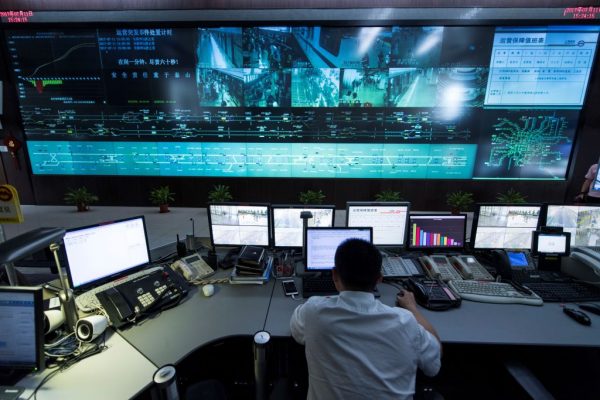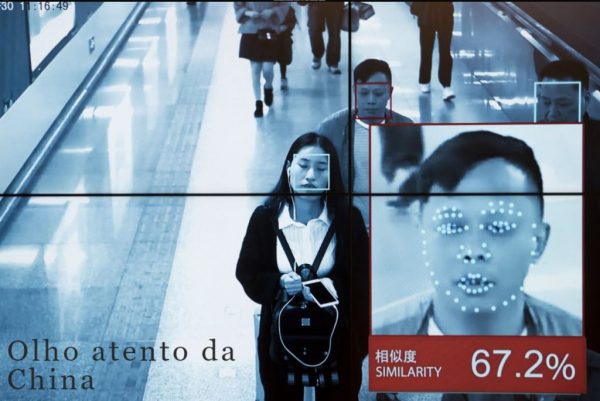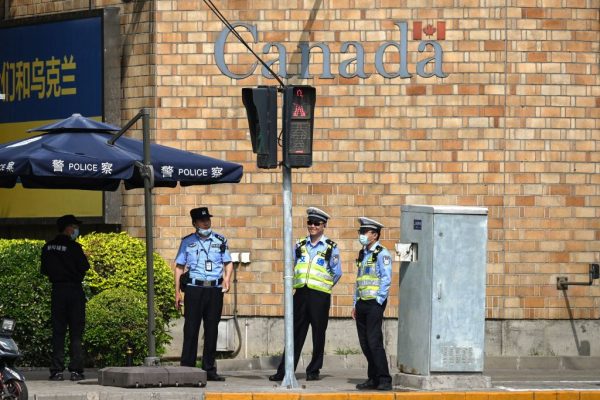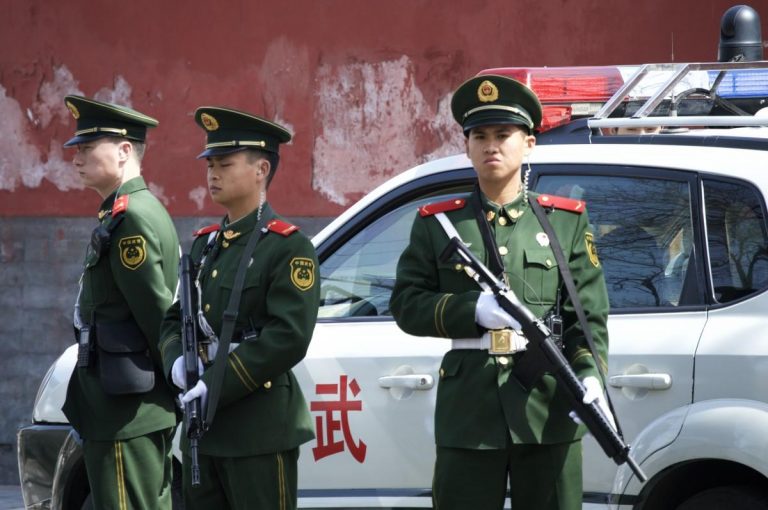According to a recent report by the U.S.-China Economic and Security Review Commission (USCC), the Chinese Communist Party (CCP) has been intensifying its global campaign to silence critics beyond its own borders.
The campaign — which is aimed at targeting dissidents, activists, journalists, and ethnic minorities — impacts not only Chinese citizens, but also individuals in the U.S. and other countries, the report notes. Employing tactics such as stalking, surveillance, threats and intimidation, the CCP aims to control and silence all those who speak critically towards its governmental policies and human rights’ abuses.
The “CCP’s actions pose significant threats to U.S. national security and international sovereignty,” the Dec. 13 report notes, adding, “This conduct infringes on the sovereignty, rights, and legitimacy of international law enforcement frameworks.”

The USCC is a congressional commission that was established in 2000 with the goal of monitoring, investigating, and submitting an annual report to Congress on the national security implications between the U.S. and China. Its duties also include assessing the implications of U.S.-China economic and trade opportunities, examining China’s ability to produce military technology, and evaluating the quantitative and qualitative nature of Chinese military expenditures.
In turn, the commission plays a crucial role in shaping U.S. policy towards China by providing recommendations to Congress for legislative and administrative actions in areas of concern.
Scope of ‘transnational repression’
Success
You are now signed up for our newsletter
Success
Check your email to complete sign up
Transnational repression — as defined by the U.S. Federal Bureau of Investigation (FBI) — refers to when “foreign governments stalk, intimidate, or assault people abroad,” through various means that include harassment, hacking, kidnapping attempts, disinformation campaigns, financial sanctions, or threats against family members overseas. This tactic has become a hallmark of the CCP’s approach to dealing with dissidents and critics globally — marking a worrying trend in international relations and human rights, the report notes.
MORE ON CHINA’S HUMAN RIGHTS TRACK RECORD:
- The Latest Victims of China’s Surveillance State
- Soaring Numbers of Chinese Nationals Arrested at US Southern Border as Communist Party Intensifies Oppression
- Human Rights Watch’s ‘World Report 2022’ Slams China’s Human Rights Record
- Disappeared: The Faces of Human Rights Activists Silenced by Communist China
According to the report, the Tiananmen Square massacre in 1989 was a turning point for the CCP, which led to a domestic crackdown on dissent and activism. As China’s global influence grew, these tactics expanded to the Chinese diaspora. Managing these perceived threats became essential for the CCP’s rule — leading to increased use of extradition treaties such as INTERPOL Red Notices to deploy security forces in an effort to monitor and harass individuals abroad.

“For Beijing, managing potential threats within the Chinese diaspora — which it broadly defines as all ethnic Chinese, regardless of citizenship — is necessary to maintain the CCP’s domestic rule,” the report says.
Under the leadership of CCP General Secretary Xi Jinping, China has elaborated and expanded its tools of transnational repression, the report adds. Operations like Fox Hunt and Sky Net — launched to repatriate Chinese citizens — often target dissidents living abroad. These projects, coupled with increased international surveillance has led to the creation of controversial groups like “overseas police stations” and so-called “coercion-by-proxy” tactics.
“Chinese officials have emphasized the importance of extradition treaties in efforts to repatriate overseas fugitives for General Secretary Xi’s ‘anti-corruption’ campaign,” the report notes.
Relentless pursuit
According to the report, the CCP employs at least seven methods to suppress dissent abroad. These include direct tactics like overseas police stations, intelligence officer deployment, and coordination with Chinese student groups on U.S. campuses. Indirect methods include digital harassment and coercion-by-proxy, while politically motivated INTERPOL Red Notices and bilateral extradition treaties lend a veneer of legitimacy to these actions.
MORE ON THIS: Family of Washington-based Student Activist Targeted By Chinese Authorities
Investigations into Chinese “overseas police stations” have revealed their role in covertly monitoring and intimidating critics in foreign countries, the report finds. The Department of Justice (DOJ) notes that the “establishment of these stations reveals the Chinese government’s flagrant violation of our nation’s sovereignty.” An FBI investigation in April that led to the arrests of CCP spy agents connected to a station in New York exemplify this tactic and underscore the CCP’s use of aggressive tactics in international settings.

The CCP employs diverse methods to suppress dissent overseas, ranging from direct interventions to more covert tactics, the report highlights. This toolkit includes establishing spy stations, deploying intelligence officers, and leveraging student groups in foreign universities to intimidate and harass Chinese dissidents, critics, and U.S. residents.
China’s spy agency, the Ministry of State Security (MSS), also plays a key role in surveilling and intimidating communities like Uyghurs, Tibetans, and Hong Kongers that live in the U.S., the report highlights. The CCP routinely “deploys officers and recruits assets to track and harrass these groups.” Recent DOJ reports also highlight the direct involvement of the MSS in such activities.
Implications for US national security
The report notes the role played by the Beijing-controlled Chinese Students and Scholars Associations (CSSAs) in actively suppressing free speech on U.S. campuses. According to the U.S. Department of State, CSSAs are “supervised by the CCP’s United Front Work Department (UFWD) and receive guidance and funding from Chinese embassies and consulates.” These associations often disrupt school events and harass students enrolled in American institutions, says the DOJ.
The CCP’s transnational repression activities have profound implications for U.S. national security, the USCC report notes. They challenge the sovereignty of the U.S. and other nations, undermine the rights of individuals, and exploit international law enforcement platforms for political ends.
“The United States currently lacks a comprehensive strategy to counter Beijing’s transnational repression,” the report concludes. “Congress should consider leveraging both existing and new policy tools to address this challenge.”







